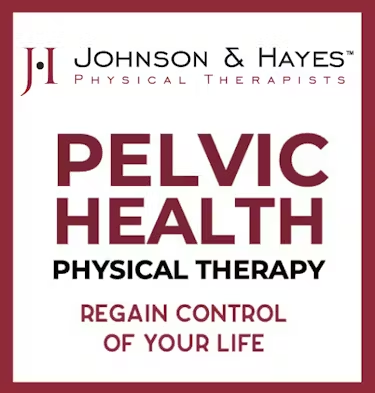Care Team

Dr. Hayley Abell, PT, DPT
Postpartum Corrective Exercise Specialist
Certified Pelvic Health Therapist via Herman & Wallace Pelvic Rehab Institute


Dr. Brooke Bishop, PT, DPT
Certified Pelvic Health Therapist via Herman & Wallace Pelvic Rehab Institute


Dr. Olivia Johnson, PT, DPT
Certified Pelvic Health Therapist via Herman & Wallace Pelvic Rehab Institute


Dr. Katlynne Dreaden, PT, DPT
Certified Pelvic Health Therapist via Herman & Wallace Pelvic Rehab Institute

Pelvic Floor Dysfunction (PFD)</span > is a condition where pelvic floor muscles are either under-active or over-active, creating weakness or excessive tone. This muscle dysfunction can alter bladder and/or bowel habits as well as sexual function. PFD is very common, at least 1/3 of women are affected by it at some point in their lifetime. In addition to disrupting everyday life, PFD can often be very painful.
Johnson & Hayes® is committed to helping those with PFD regain control of their life. Our pelvic floor program is staffed by therapists who have gone through specialized training and who feel passionately about their role in helping those with PFD. You can learn more about our pelvic health program here. Please contact us directly with specific questions and/or to set up an appointment.
Goals of Physical Therapy
- Regain control of your life
- Regain control of your bladder and/or bowels
- Decrease pain and return to daily activities and the things you love
- Avoid surgery
- Reduce need to take medications
- Refer you to the correct specialists if needed
Common Symptoms:
- Urinary or fecal leakage with coughing, sneezing, laughing, yelling, running, jumping, lifting
- Urinary or fecal leakage on the way to the bathroom
- Use of the bathroom more than 6 times a day or more than once a night
- Using the bathroom “just in case” you won’t be near one in the next two hours
- Pelvic or lower abdominal pressure
- Unable to fully void
- Urge to go to the bathroom after just going
- Need to change body position to defecate
- Constipation
- Pelvic pain or burning
- Pain with use of tampon or intercourse
Common Treatments:
Treatment is based on your needs and may include:
- Pelvic floor strengthening
- Core strengthening
- Manual soft tissue
- mobilizations
- Manual joint mobilizations
- Diaphragmatic breathing
- Relaxation techniques
- Postural strengthening
- Scar tissue mobilization
- Education on bladder training, diet, and behavioral interventions
What can I expect on my Initial Evaluation?
You will be asked about your medical history and current symptoms.
Our therapists will discuss your concerns and then examine your spine, hips, and externally (with your clothes on) assess your pelvic floor. If necessary, on a subsequent visit, an internal exam may be warranted (Only with your permission and at your comfort level).
Together you and our therapists will come up with a plan of care that addresses your goals. Our therapists will explain the progression of treatment and how to accomplish your goals.

